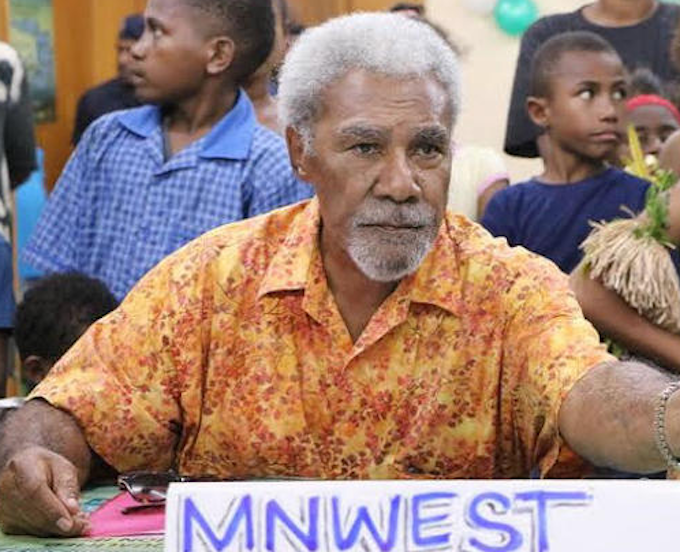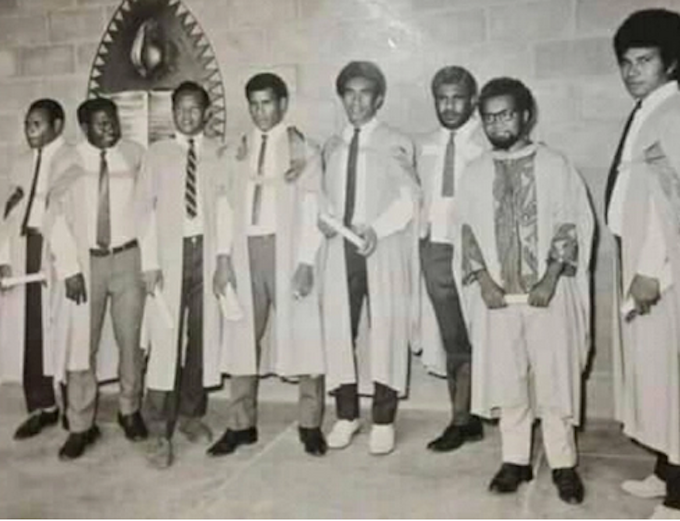
OBITUARY: By Scott Waide in Lae
For many Papua New Guineans, Sir Mekere Morauta will be remembered as the straight shooting politician and the reformist Prime Minister, whose work came to be appreciated more than a decade later.
Up until the 1990s, Mekere Morauta’s public life was rather low key.
He thrived behind the scenes, helping to develop, shape and implement important government policies.
He was the first graduate in economics from the University of Papua New Guinea and with it came important responsibilities, both for his people and the country.
In 1971, he began a career in the public service as a research officer with the department of Labour. A year later, he took up a job as economist in the Office of Economic advisor.
When Papua New Guinea became self-governing in 1973, the government of Chief Minister Michael Somare sought out its best and brightest to help run the young democracy.
At 27, Mekere Morauta was thrust into a position of power and responsibility with his appointment as Secretary for Finance – a post he held for nine years.
Important influencer
He was always an important influencer in the banking and financial sector of Papua New Guinea.
In 1983, he was appointed managing director of the Papua New Guinea Banking Corporation. He held the position for another 9 years until his upward transition to a new job as the Governor of the Bank of Papua New Guinea.
It was during this short stint as the central bank Governor that he shot to prominence as an outspoken enemy of the corruption that was infecting PNG government institutions.
Sir Julius Chan was Prime Minister then and in a foreign documentary about corruption in Papua New Guinea, Mekere Morouta spoke out describing the rampant corruption and “systemic and systematic.”
He was removed one year into the job.
Scott Waide reflects on his association with Sir Mekere Morauta, former #PNG prime minister who died earlier this week. “The ease with which Sir Mek explained economic theory brought it to life. He was a guru, a brilliantly articulate economist politician” https://t.co/XAhDvtyTdM
— Keith Jackson AM (@PNGAttitude) December 25, 2020
The period from 1994 to 1997 was politically turbulent.
The international attention on government institutions and the corruption highlighted by key figures in Papua New Guinea, including Sir Mekere, caused many Papua New Guineans to demand a change in leadership and management.
The seeds had already been planted.
South African mercenaries
In 1997, when the government of Sir Julius Chan opted to bring in South African mercenaries to end the Bougainville crisis, PNGDF commander Brigadier-General Jerry Singirok called for the prime minister to step down and riots broke out.
It was months before the elections and when Sir Julius was voted out of office, a new group of political leaders, including Sir Mekere Morouta were voted in.
For the next three years, the country faced deep economic trouble.
The decade long closure of the Bougainville mine, a severe drought and high unemployment and government institutions in desperate need for reform… this was the scenario in 1999 when Sir Mekere took over from Bill Skate as prime minister.
In the next three years, Sir Mekere had the most impact on Papua New Guinea’s political and economic future.
In 2000, the Mekere government introduced sweeping reforms in the finance and banking sector. He introduced legislative reforms that strengthened the superannuation funds and banks, effectively eliminating much of the political interference that these institutions had long been burdened with.
Through the reforms, Nasfund and other superfunds which were on the brink of collapse, were revived and strengthened
In the political sphere, constitutional changes were made to strengthen political parties and other institutions of state.
As Papua New Guineans come to grips with the void left by Sir Mekere’s passing on December 19, the impact of his decisions at the turn of this century will continue to be felt decades into the future.
Scott Waide is a leading Papua New Guinean journalist and a senior editor with a national television network. He writes a personal blog, My Land, My Country. Asia Pacific Report republishes his articles with permission.












































